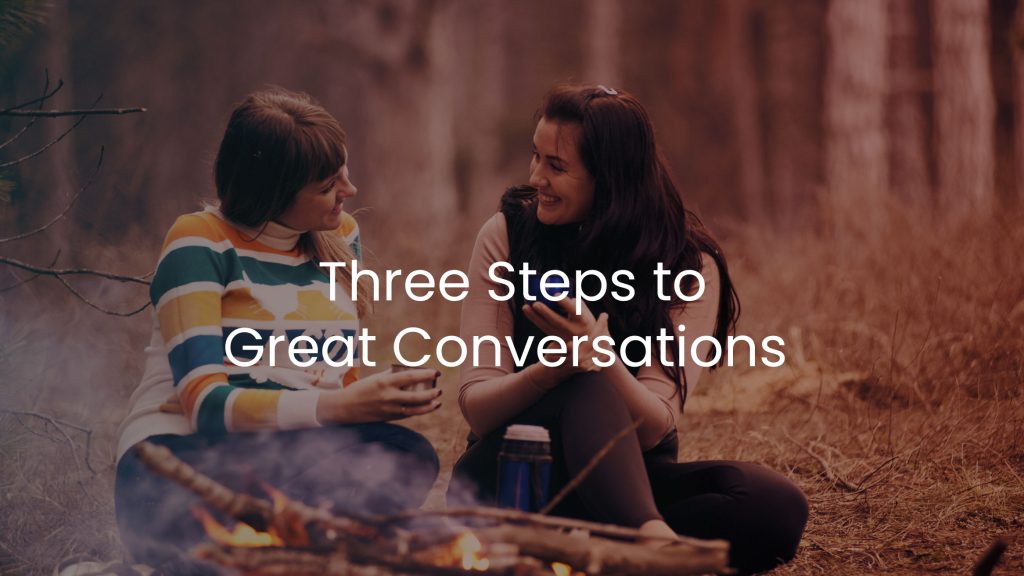|
Getting your Trinity Audio player ready...
|
Let no corrupting talk come out of your mouths, but only such as is good for building up, as fits the occasion, that it may give grace to those who hear (Ephesians 4:29, ESV).
God made us for relationships, and our relationships grow or diminish through conversations.
One study found that the average person in America has 27 conversations each day. Honestly, since I’m becoming more of a study/research hermit, I prefer far less! But all of us have many discussions during the day, so we might as well make the best of them.
Below are three steps to great conversations …
- Focus on the other person
Nobody likes to have a long conversation with someone who endlessly talks about themselves, and that even when other topics are mentioned, this person manipulates the conversation back to themselves.
If this is you, you don’t realize it. Monitor your 27 conversations today and notice how often you talk, perhaps even ask a friend to give feedback on whether or not you dominate a conversation.
- Ask questions
After the typical small talk when opening a conversation, ask the other person a question. Then ask a follow-up question. Remember, asking another person a question is not a launching pad to talk about yourself!! Listen closely, ask questions, and then comment on what they say.
Only after this opening salvo of questioning and response should you say something about yourself — usually connected to what the other person said. Great conversations are back and forth with equal participation!
A personal note: One of my professional liabilities as a pastor was that during events like a lunch after a memorial service, a wedding reception, or a graduation party, many attending didn’t want to talk with me, perhaps thinking that I would launch into a sermon or tell them they were going to hell.
When I sensed this hesitancy, I asked them a question about what they did for a living and then asked a question about that occupation. I found that most people want to talk about their job.
I enjoyed this challenge of talking to people who initially didn’t want to talk to me. I found it gratifying to dispel some of their false inclinations about pastors. If attending a funeral, wedding, or some reception, knowing that I would blow through my 27 conversations a day limit, I made the conversations more enjoyable by talking with those who initially didn’t want to talk with me.
- Understand the type of conversation
Researchers say that people talk about three things: their emotions, decision-making, and discussions of who they are. Yep, just three areas that our conversations focus on.
If we discern quickly that someone wants to express their emotions, make a decision, or discuss topics like purpose and meaning, the conversation tracks well. Many of us have a negative experience when sharing strong emotions with someone who quickly tells us what we should do or explains how our personal inadequacies caused the problem.
Lesson: With an emotive conversation, don’t drift into telling the other what decision to make or what action to take; with decision-making talk, don’t get emotional, and with a meaning in life conversation, don’t tell the other person what their next steps should be and then get emotional if they won’t listen.
Let’s review the three steps to great conversations:
- Focus on the other person; be interested in them
- Ask questions and listen carefully
- Know the type of conversation and adjust your words accordingly
Now go and have your 26 conversations today. You can deduct one from 27 because you carefully read this Interruption.

